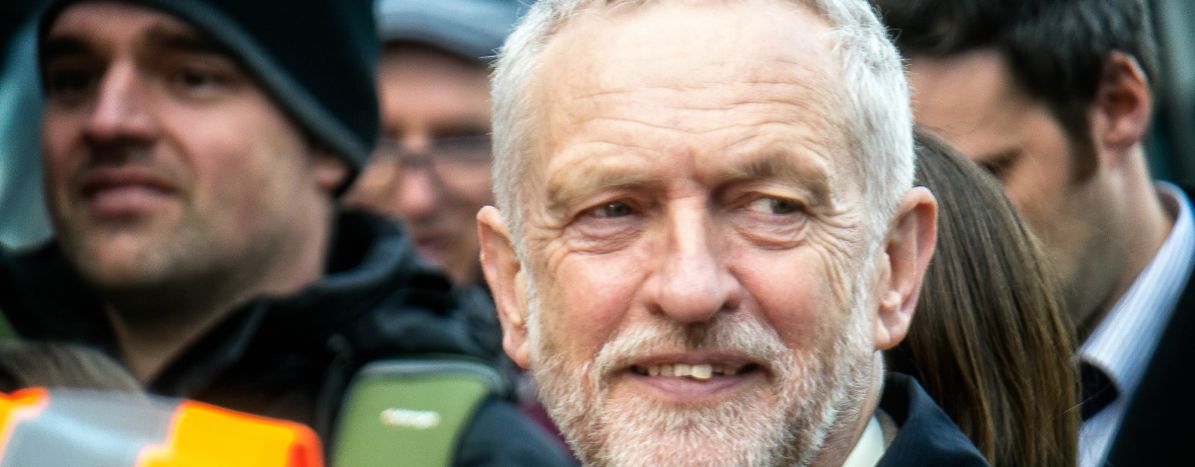
Corbyn's second coming: Time to just get on with it...
Published on
It’s been quite the turbulent year in UK politics: more so than most for young Europhiles. After facing the prospect of being pulled out of the EU by a referendum result disproportionately supported by older voters, we’ve endured months of infighting from a Labour opposition seemingly intent on self-destruction. Quite the double whammy for a left-leaning millennial. [OPINION]
The left has seen better days all across Europe. Right-wing populism is surging forward in Germany and the Netherlands. French Socialist President François Hollande faces record low approval ratings ahead of next year's elections. Even though a former Green Party independent won the Austrian presidency, irregularities in the count caused results to be annulled. His far-right opponent could snatch victory in the recount.
Yet nowhere does this crisis seem quite as farcical than within the UK’s Labour Party. On top of right-wing populism siphoning off their voters, the party seems quite content to perpetuate a bloody civil war. Self-proclaimed socialist Jeremy Corbyn has just emerged victorious from said political infighting, securing his second leadership victory in just over a year while increasing his mandate from his original success, securing 62% of the vote from party members.
Upon hearing the news that Corbyn had first been elected Labour leader in 2015, I quite literally danced in the rain outside a Parisian boulangerie. Years of weak-willed left-wing opposition spouting watered down versions of Conservative policy seemed to be ending, as the hope of a viable anti-austerity movement ceased to be a fairytale. Fast-forward 12 months – and one lost referendum – and the situation is best summed up with a phrase from our French cousins: "C’est le bordel."
Labour just can't stop disagreeing
The political storm that's been busy engulfing the British left could now show signs of subsiding – if the internal struggles gripping the party don’t whip up the winds once again. Throughout a summer of bitter battling, Jeremy Corbyn has maintained an aura of calm befitting the eye of a hurricane. Though while he may have managed to hold on to power within his own party, he’s far from presenting a united national opposition.
Labour was already heavily divided before the game-changing outcome of the EU referendum. Moderates within the party, already denouncing Corbyn's swing to the left as unelectable, now criticized their leader’s lukewarm support of Remain. Labour wasn’t the only party to start tearing itself apart in the wake of the vote, but they did so in a particularly spectacular manner.
While Labour engaged in their drawn-out destruction, the governing Conservatives emerged from their own spate of infighting looking remarkably stable. After just over two weeks of political turmoil, from one Prime Minister resigning to the next being anointed, the Conservatives embraced Theresa May’s "just get on with it" approach and the accompanying sense of a safe pair of hands. Both the left-wing Green Party and the far-right UKIP successfully elected new leaders, and even the Liberal Democrats, massively reduced at the 2015 general election, newly positioned themselves as the voice of Britain’s pro-European centre ground.
In the meantime, Labour just kept on disagreeing. Though many were united under the anti-Corbyn banner, no one was really sure what alternative was being presented. An initial opponent, Angela Eagle – whose launch event was overshadowed by the announcement of May as Prime Minister – was quickly deemed unsuitable due to her support of the 2003 invasion of Iraq. The eventual contender, Owen Smith, proved unable to communicate just what he stood for, instead presenting himself as a marginally more electable Jeremy Corbyn. Had Smith won the leadership, it’s still not entirely clear what form his premiership would have taken.
All the so-called “coup” managed to achieve was a series of reputation-damaging gaffes and an increase in support for Corbyn as leader. Accusations of vote-rigging eroded trust in party management, following attempts to first keep Corbyn off the ballot altogether, then to try and bar new, predominantly pro-Corbyn members from voting. Finally, established party members were kicked out of the party for supposed disloyalty – often for actions as inconspicuous as tweeting their approval of another party’s policy.
The least shambolic future available
Labour needs to pull together and start working out who it seeks to represent. As the Lib Dems make a heartfelt appeal to the 48% who voted Remain, Labour continues to lose votes in its core heartlands to Eurosceptic UKIP – Corbyn’s own Euroscepticism remains heavily criticised by his party. As SNP support in Scotland shows no signs of collapsing, there seem very few options for the party's new direction. Labour’s core membership has now rejected centrism for the second year running, meaning it's getting harder to justify arguments for occupying the territory left vacant by May as she pulls the Conservatives further right. Corbyn’s anti-austerity, pro-Union position – however unelectable – is fast becoming the only option holding any political weight.
Whoever had emerged victorious this weekend, Labour would've had to unite behind their leader if they wanted any chance of shaking their growing reputation for incompetence to emerge as an effective post-Brexit opposition. The jury’s still out on whether it's possible. But Corbyn’s continued leadership seems less because his party thinks he can win an election and more because, of all the ways Labour could shamble blindly into their Brexit future, his seems the least shambolic.



